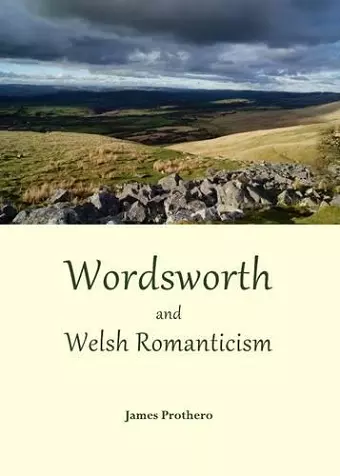Wordsworth and Welsh Romanticism
Format:Hardback
Publisher:Cambridge Scholars Publishing
Published:26th Jun '13
Should be back in stock very soon

Popular anthologies hold that the Romantic Era in Great Britain ended promptly in 1832 and that the early Twentieth Century was the time of Modernism and the rejection of the Romantic in British letters. However, in Wales, just the opposite was true. This study traces the work of poets and novelists in Wales in the early- to mid-Twentieth Century who all found their poetic master to be William Wordsworth.In the early part of the century, W. H. Davies, John Cowper Powys and Huw Menai – a tramp, a mystic novelist and a coal miner – produce novels and poetry with Wordsworth as their acknowledged master. By mid-century, Idris Davies, a coal miner turned teacher, R. S. Thomas, an Anglican priest, and Leslie Norris, another teacher, are writing in the "mountainous shadow of William Wordsworth."While the literary lights of London are leading the Modernist revolution, in Wales, the inspiration is still the English poet, Wordsworth. This study will illuminate this flare up of Romanticism, and show the way in which Romanticism re-emerges from unexpected quarters.
"Over the past two decades scholars of William Wordsworth and Romantic Era writing have seen a shift in the study to include the effects of Romantic era thought on later nineteenth- and early twentieth-century writers. James Prothero's Wordsworth and Welsh Romanticism (2013) contributes to this focus by paying particular attention to the ways that Romanticism appears unexpectedly in early twentieth-century Welsh poetry. In doing so, Prothero makes important connections between Wordsworth and Wales—both in terms of how Wales influenced Wordsworth, and how Wordsworth influenced Welsh writers in the twentieth-century. […] Although there has been increasing interest in Wordsworth's relationship with Wales and notions of national identity in his writing, Prothero's book is significant to the study because it examines not only how Wales influenced Wordsworth, but also how Wordsworth continued to influence twentieth-century Welsh writers. […] Although Prothero responsibly asserts that his book does not argue for Welsh Romanticism as a movement, he lays the groundwork for critical assessment of such an argument in his assessment of six writers who were keenly aware of Wordsworth's presence and voice in their writing"—Kelly Hunnings, University of New Mexico; Rocky Mountain Review, 69.1, 2015
ISBN: 9781443847742
Dimensions: unknown
Weight: unknown
215 pages
Unabridged edition